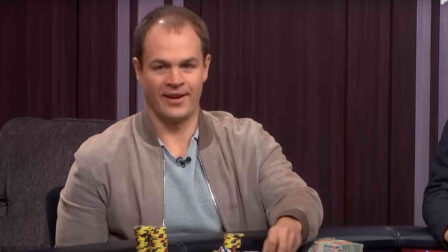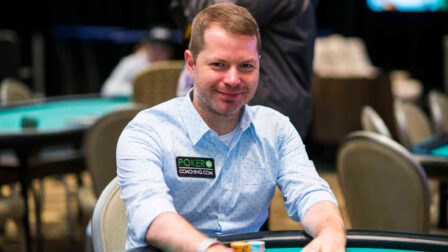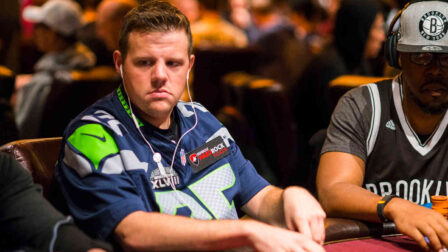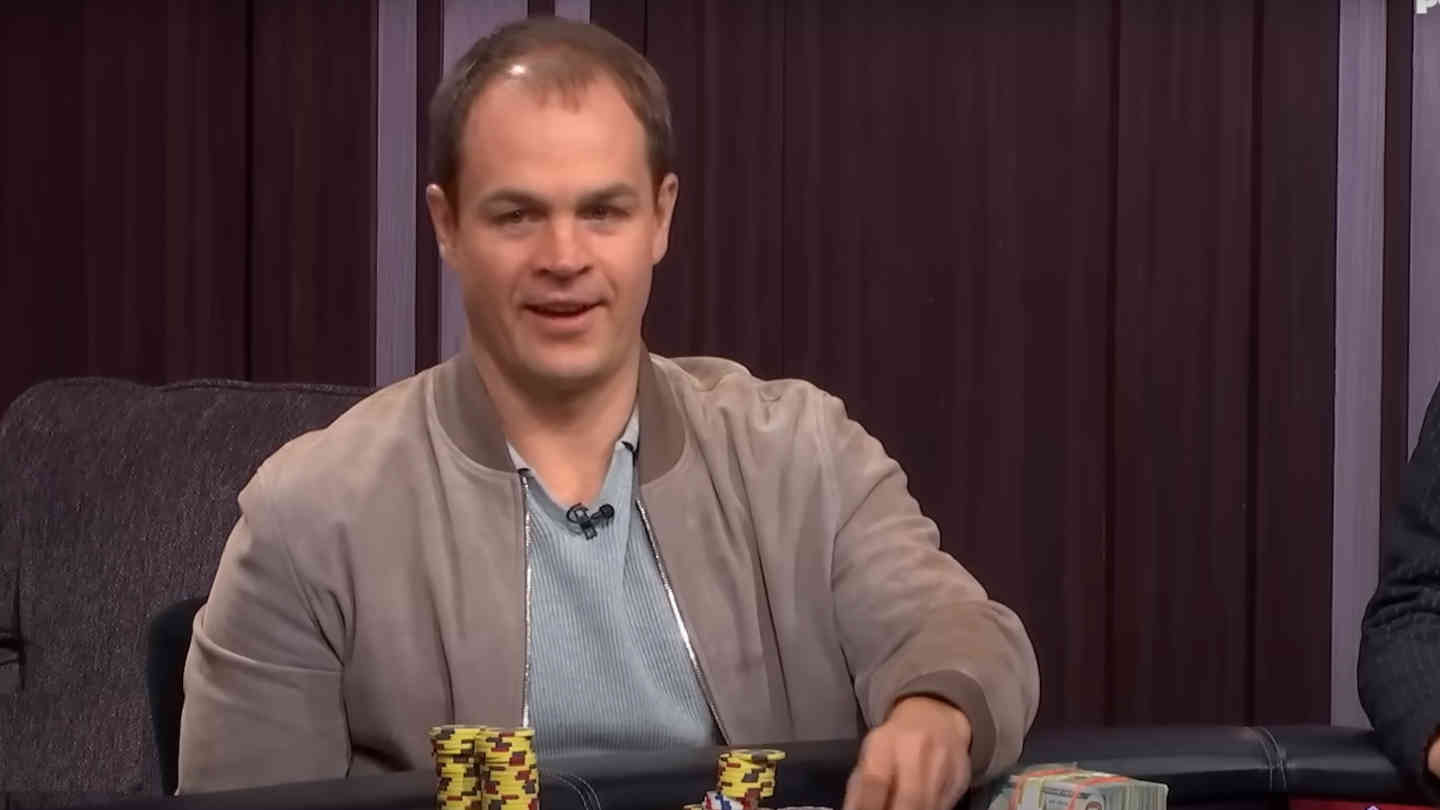How to Crush Calling Stations Without Good Cards?
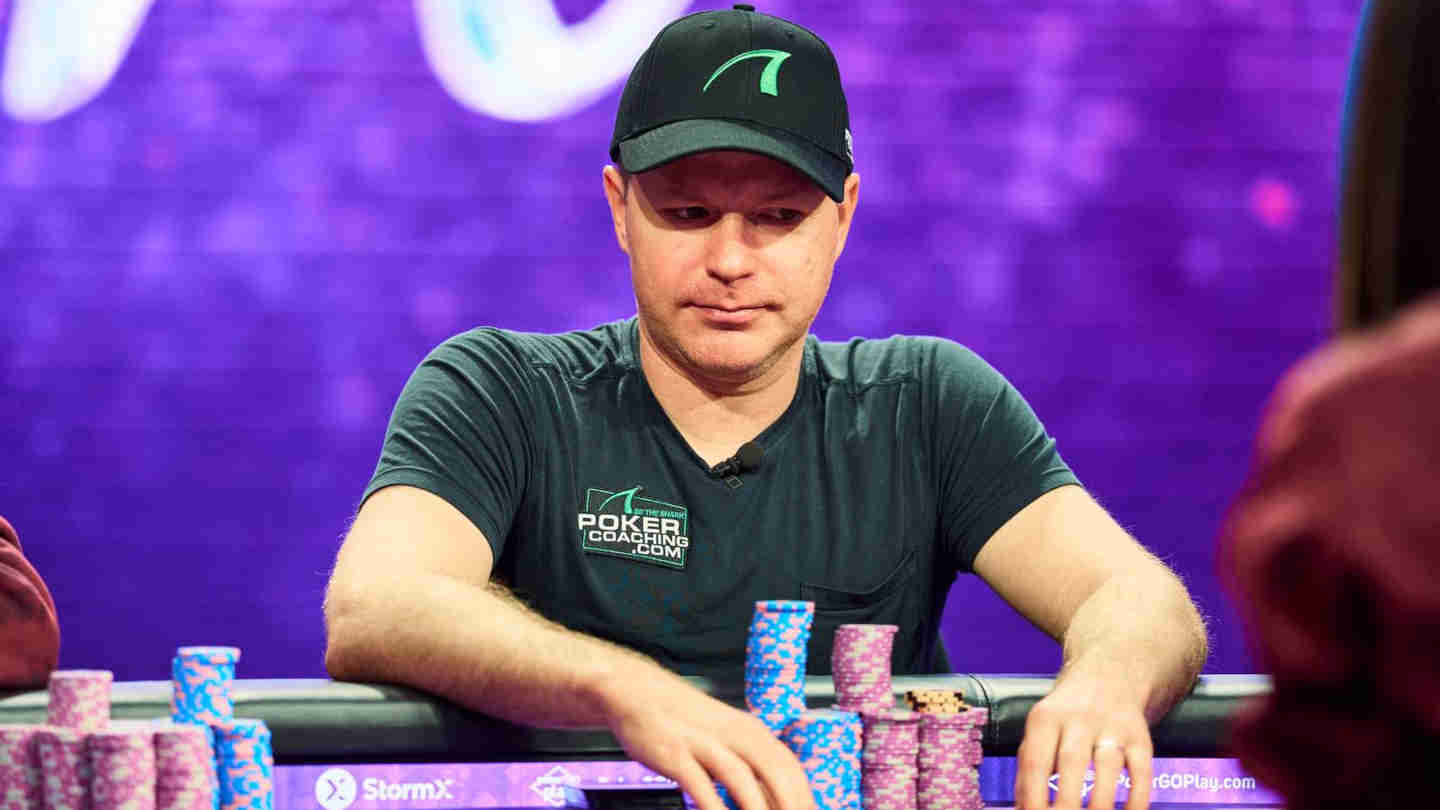
5 minutes
Last Updated: January 18, 2024
If you want to increase your edge at the tables even further, make sure to check the Pokercoaching training site.
…
In small stakes cash games and tournaments, you’ll often come across the type of player that we classify as a “calling station.” This means they’ll refuse to fold before the flop, and you’ll have to play many flops, turns, and rivers against them.
When you’re running well and hitting good hands, this is the dream scenario, as you’ll be able to take their chips with ease. But when you’re card dead and can’t seem to connect with the board, this can get frustrating pretty quickly.
So, how do you deal with calling stations when you’re card dead and still come out ahead?
Before we dive into this topic, let’s cover a few basics. The fact is, you’ll sometimes go card dead – that’s just the nature of the game. When this happens, you’ll often lose – the skill will get you a part of the way there, but if cards completely refuse to cooperate, you’ll struggle to beat someone who simply refuses to fold.
With these couple of things out of the way, let’s now look at strategies you can employ to alleviate the situation and get the best out of a realistically bad situation.
–
How Much of a Calling Station Are They Really?
The first thing we need to get out of the way is whether the players at your table are really calling stations. It’s common to attach this label to other players without enough evidence to support it, and this assumption can lead to some poor decisions.
And even if some of your opponents do belong to the calling station category, there is usually a point in a hand where they stop being calling station.
The fact of the matter is, in most low-stakes games, be it tournaments or cash tables, most players are reluctant to put all of their chips in the middle with what amounts to just a bluff catcher.
You should keep this in mind and be prepared to put your opponents to the test with big bets on all three streets if the situation calls for it.
For example, if you put your opponent on a big hand like pocket aces, but the board runs really poor for their range, like 4♠5♠9♥8♥6♣, you’ll put them in a really difficult spot if you move all-in on the river, even if their general tendency is to stick around to the showdown.
The additional benefit of pulling three-barrel bluffs or throwing in a river check-raise with a blocker is that, even if you get called, you’ll put the seed of doubt in your opponents’ minds. The next time you actually have the nuts, it will be much easier to get paid, as they’ll know you’re capable of bluffing.
Playing Short Stack Isn’t the End of the World
For many players out there, getting short-stacked and having to play with a few chips is a scenario they dread. The fact of the matter is, this isn’t the end of the world. While it’s more fun to have a large stack to work with, knowing how to navigate a short stack is very important and can be quite advantageous.
If you actually know how to play with a short stack and are familiar with proper hand ranges, you can get a big edge over the table. While deeper stacks will get involved with a variety of hands, you’ll have pretty straightforward decisions to make before and on the flop.
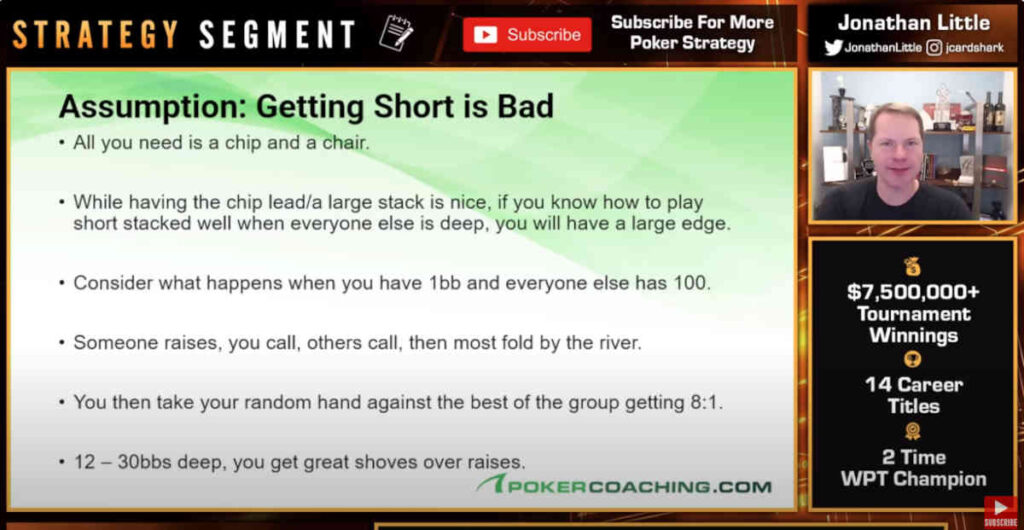
For example, when you find yourself in a situation where you’re sitting with a stack of 12 – 30 big blinds, you’ll have plenty of great opportunities to shove over your opponents’ raises, especially if they’re not paying attention and are opening fairly wide.
This is a highly profitable play because most players will not defend against your all-ins nearly often enough.
All this is to say that getting short isn’t necessarily all that bad, and you shouldn’t force things just to avoid the short-stacked scenario. As long as you’re confident in your strategy, you’ll get plenty of opportunities to chip up later down the line.
Busting Tournaments Is Okay
The final thing I want to address is that you’ll bust most tournaments you play. Personally, I’d say that I bust around 30% of tournaments without winning any significant pots.
Sure, it’s not fun to travel halfway across the country just to hang around for a couple of hours and bust without playing any interesting hands, but it happens – and it happens a lot.
This is a part of the natural variance that comes with poker, and there is really not that much you can do about it. The best thing you can do is to actually study away from the tables and learn to recognize those situations where you’re very likely to just lose.
As much as we’d like, there is no magic formula that will help save you from setup scenarios. If you’re dealt pocket aces with 30 big blinds and the board comes 9-4-2 rainbow, you’re going broke there if your opponent out-flopped you.
If you’re not going broke in these situations, you’re not playing well. In fact, you’re probably playing poorly and too timidly.
You Signed Up for It!
Busting tournament sucks. Playing against opponents who seemingly refuse to fold and not being able to make a hand sucks. All of this is true, but that’s the nature of the beast.
You signed up for it when you decided to play poker!
Poker is a high-variance game, and that’s okay. Often, there isn’t much you can do. Your best bet in these scenarios is to look for spots where you can put a lot of pressure on your opponents and get them to fold by the river as the board runs really bad for their range.
When you get short, you can also find ample opportunities to get your stack in and win without a showdown. The added benefit is that when they do look you up, whatever the cards may be, sometimes you’ll win and chip up.
The bottom line is that whether you’re playing a deep or shallow stack, apply the proper strategy, get involved, and fight. The last thing you want is to gradually get blinded down by constantly calling raises and folding when you miss.
Play your best game, do everything you can to put yourself in a position to win pots, and don’t worry about things that are out of your control!













